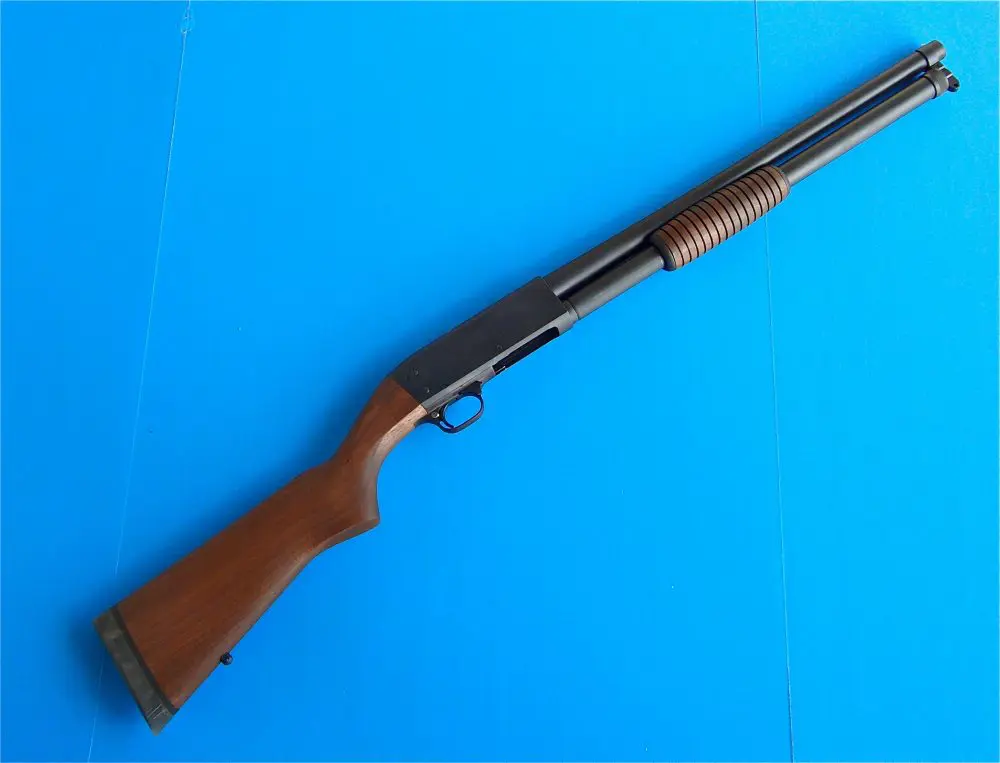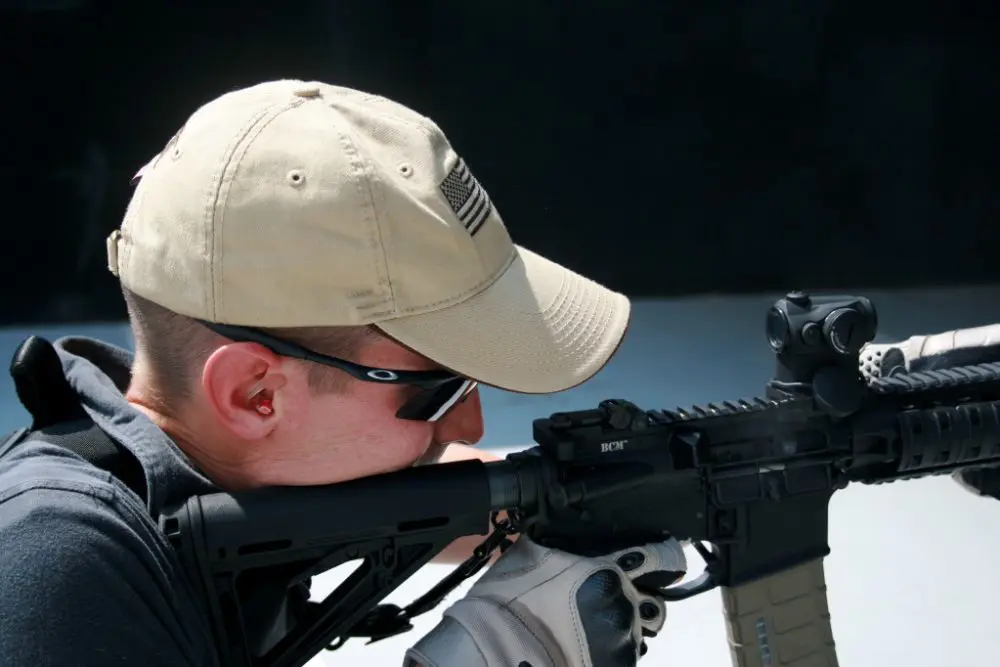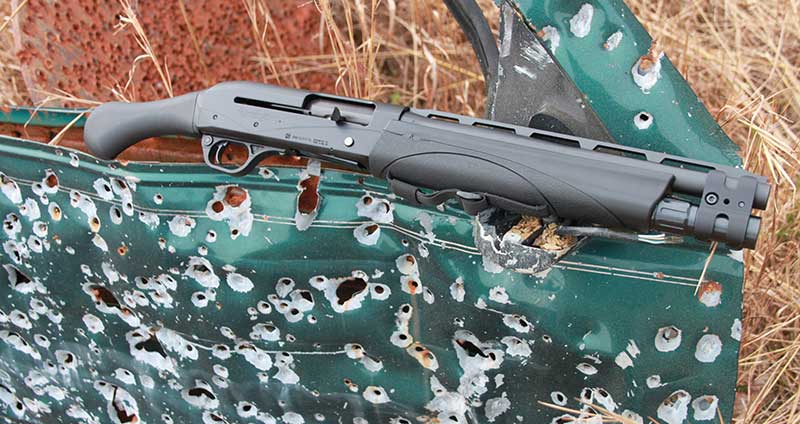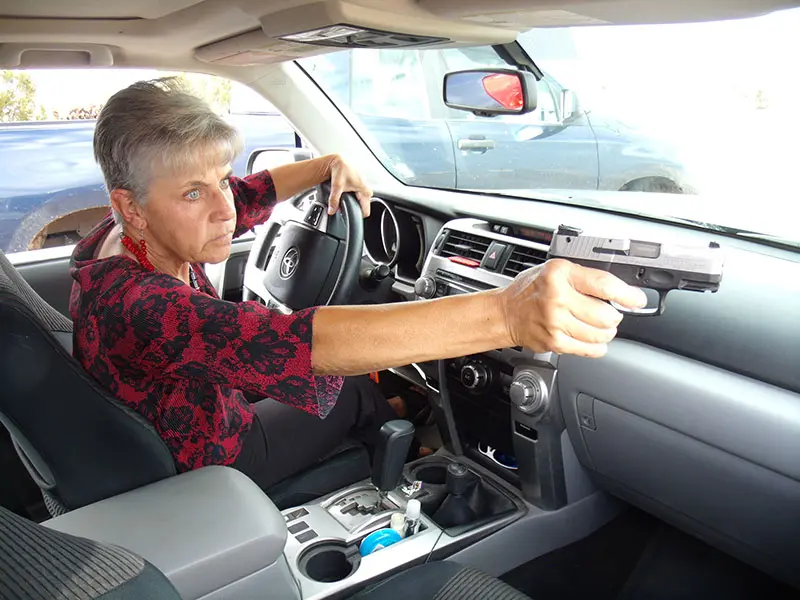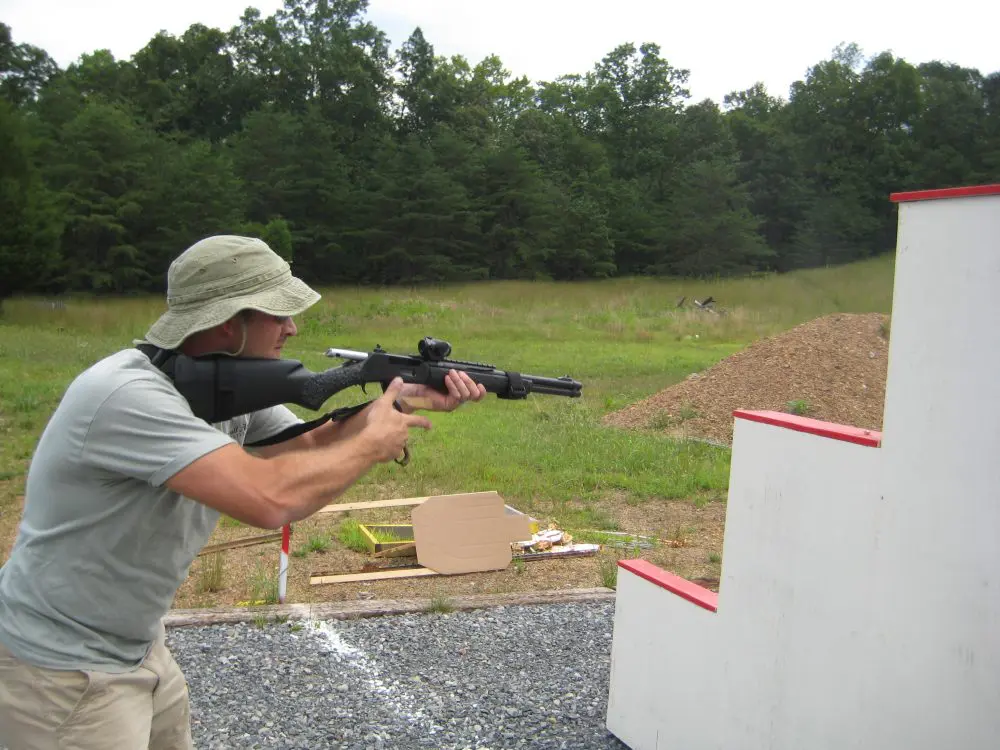Table of Contents
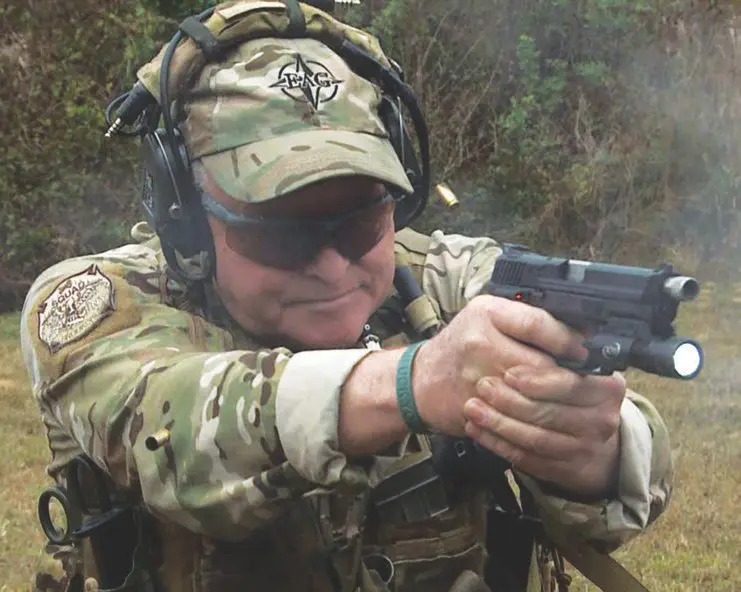 Why I Switched To 9mm
Why I Switched To 9mm
Change is constant. We get older, wiser, slower, grayer and hurt more easily. All of these add up to experience, which may be defined as what we get when we don’t get what we want. Carrying a handgun is something that is very personal, in that it is with you almost every day of your adult life. Which pistol one carries may be mandated or a matter of choice. The decision-making process that leads up to the acquisition may be nothing more than a picture in a magazine, word of mouth or hopefully, some conscious thought.
For agency users, the selection process may take strange turns that lead to unintended consequences. An example of this is when police administrators opt for a double-action pistol, believing that it will be somehow “safer,” when it is in fact no more nor less safe than any other pistol—just a lot more difficult to manage the trigger properly.
BACKGROUND

The first handgun I fired was my Uncle’s service revolver, an S&W M&P. He was a cop in NYPD, a path I took 18 years later. I was nine years old at the time and didn’t shoot another handgun until I was 17 and in the Marine Corps. Since then, I have been issued or chose to carry 1911A1s, S&W M19, S&W M10, S&W M36, a Ruger Speed Six, Glock 19, Browning Hi-Power, Government Models, as well as Commanders and various models of the S&W M&P semi-autos.
The single gun that I carried the most, enjoyed shooting the most, and shot the best was the 1911 type. Subjectively, it carried very well. Objectively, I shot the 1911 better than any other handgun I have ever fired. The Man Gun was an absolute pleasure in almost every respect. And contrary to the hype, I never had much in the way of problems with the 20+ 1911s I have used over the years.
WHY THE CHANGE?
There were two reasons why I decided to make a change. First was the fact that as I moved along in years, shooting .45 ammo became painful. Years of shooting as well as accumulated injuries had left me with tendonitis in both elbows and arthritis in my hands. The second was simpler. The Government Model has a magazine capacity of seven rounds (and of course one in the chamber). Yes, I am cognizant that eight-round magazines exist, but they also are generally not as reliable as the seven-round magazines.
Back in the day, I was taught (and bought into) the nonsense that you only need a high-cap gun if you intend to miss a lot. This was analogous to the reason why some cops only carried an S&W J frame with no reloads—the “If I can’t solve it with five rounds, I need to find another job” syndrome.

Both types of comments are stupid and reflect a lack of common sense and experience. We have known for a long time that pistol-caliber cartridges are poor performers. And while many parrot the “One Shot, One Kill” mantra, one single shot fired from anything you can reasonably hold in your two paws cannot be guaranteed to stop an opponent.
We have to understand that multiple shots into your opponent will be the reality, not the exception. If we take it a step further and introduce one or more additional opponents into the fray, you can see the need for additional ammunition carried within the gun. If you think for a minute that you will only ever face a single bad guy, you may want to re-consider your mortality.
Consider getting fuel at a service station adjacent to an interstate and having a car occupied by four ne’er-do-wells slowly pull up at the pump opposite you. No one gets out, but their heads are on swivels, looking, gauging, trying to work up to it. Think that’s unusual? It’s not, but as 90% of average earth people are in Condition White and wouldn’t know if an asteroid were on its way to have mankind join the dinosaurs, why would they be aware of a car full of mutts looking for an easy payday?
TRIGGERS

The need for a pistol having a sufficient magazine capacity was a major consideration in my selection process. I will avoid conflict if possible, but if not, I’d like to have the tools to handle the situation. Understanding that a good trigger, properly managed, is conducive to good hits, the 1911 type is the king of the hill. As I wanted a manageable trigger, this excluded single-action/double-action or double-action-only pistols.
To my way of thinking, those SA/DA pistols are abominations. Building in a bad trigger only takes away our ability to hit, and while they can be managed, they also require a lot more training as well as more ammunition to bring people up to a level of acceptable competence.

This left me with only striker-fired guns to choose from, and there are few enough of those available. I had previously carried the self-proclaimed plastic fantastic, and while one was among the better pistols I have owned, another was the absolute worst gun I ever owned. And truthfully, I was tired of the company’s line of “You’re limp-wristing the gun,” “It’s the ammunition,” or the ever-popular “You’re from New York, you don’t know anything about shooting.” Plus the gun never felt good in my hand.
When Ernie Langdon offered me an M&P .45 to T&E four years ago, I accepted and wound up using it exclusively in class until the last quarter of 2011. The gun ran like the proverbial sewing machine, and the accuracy of the platform was equal to or exceeded my expectations.
And the gun felt good in my hand. The replaceable backstrap permitted me an opportunity to modify the grip to better fit my paw. As with everything else, life is a compromise. I have small hands and the smallest backstrap fits best. However, I run Crimson Trace LaserGrips on all my working/carry guns, and they come in medium only. Ergo, I run the medium on all my guns, and without a problem.
BORESIGHT SOLUTIONS
Two other changes were in the making. I initially wanted to keep the M&P bone stock in order to have a “pure” pistol to evaluate. Once I exceeded 7,000 rounds, I figured I needed to enhance the feel of the pistol—especially the trigger.

At a carbine class at Southern Exposure Training Center in Lakeland, Florida, I noted that 75% of the students had polymer guns modified by one of the other students, Ben Simonsen of Boresight Solutions. Several good friends, including Kyle Lamb of Viking Tactics, Randy Cain, Steve Fisher of Magpul Dynamics, and my evil twin, Bill Jeans of Morrigan Consulting, have guns modified by Ben, and I took all of this as a clue.
Since then, Ben has taken all my M&P pistols and worked his magic on them. He textures and contours them, and subjectively changes the way the gun feels in my hands. That subjective feeling means that I run the gun better. Ben also installed Apex trigger kits in all my guns, and for obvious reasons. If you cannot manage the trigger properly, the ability to actually hit what you are aiming at is reduced. Stock triggers are acceptable, but having an eight-pound trigger in a two-pound, four-ounce gun means that any issue with that trigger is a surefire path to a poor shot downrange.
This is especially true for me. After having fired a lot of rounds through the 1911, which has the best service trigger of any gun I have shot, the triggers on every plastic gun were sub-par. Substituting the excellent Apex trigger for the OEM unit made the gun much easier to shoot.
SIGHTS
As with the 1911, I experimented with sights. The Man Gun had, as issued, miniscule sights, and almost everyone replaced them with something more visible. The OEM sights on the M&P were the opposite—large and clunky. I like the idea of tritium sights, although I prefer them on the front only. They are useful within a small time frame, and employing a weapon-mounted white light makes them somewhat limited. I played with a few and finally settled on Trijicon HD sights. They feel right, and I am satisfied with them. The rear sight has trit inserts, but they are very dim.
AMMO
The bigger issue in my recent revelations concerns the cartridge used. For a long time I used the .45 exclusively for both training and carry. Like many before me, my confidence in the pistol/caliber is based on experience, and a large, heavy bullet inspired confidence.
However, the bleating of the “they all fall to hardball” crowd left me wondering if some ever paid attention to reality. And that reality is any FMJ pistol cartridge in any caliber sucks. My experience in NYPD—having been present at or seen the aftermath of multiple shootings over the years—has colored how I look at what happens in a shooting.
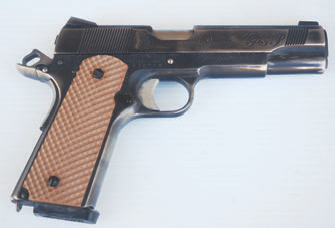
I have seen enough people turned into canoes at the City Morgue from ingesting .22, .25, .32, .380s and the like, and have seen several people take near-contact wounds to the body and head from .38, 9x19mm and .45 and survive that I am convinced that, of those things involved in a pistol fight, type of gun, bullet configuration, weight and caliber are all a distant tie for second when compared to technique and mindset.
Projectiles need to go where they will make the guy leak the quickest. Your goal is to depressurize the circulatory system—let air in, let fluid out. Bonus points for any other disruptions, but don’t count on them.
AU REVOIR .45 ACP
I have decided to leave not only the Man Gun, but also the .45 ACP. Instead, I have been using the M&P in 9x19mm. This change does several things for me. First, the gun is easier to shoot. That is, I can shoot it without pain, which makes my shooting much more enjoyable, but also allows me to train at the rate I need to maintain proficiency.
Second, it increases the magazine capacity, and while this is nice in training, there is a real-world benefit here as well. The switch to the M&P .45 provided a net increase of 37.5% in ammunition on board the gun. The change to the M&P 9mm gave me a 125% increase.
Anti-personnel ammunition has improved greatly, and the difference between good 9x19mm ammo and .45 ammo is negligible. And given that any pistol ammunition is of marginal effectiveness, my preference is to have more (good) ammunition available.
MODS AND ADD-ONS
All the M&P 9mms I use while teaching are modified by Boresight Solutions. They are contoured and textured, and have Apex trigger components installed. They all have HD sights, and I really like them.
I strongly believe in having a weaponmounted white light, and they all have a SureFire X300 with the DG switch. That white light is the key to acquiring, identifying and prosecuting an opponent in low light, and the DG switch is the most intuitive of the options available. Each of the guns also has a Crimson Trace LaserGrip attached. The visible laser is not meant to be a substitute for the primary sights, but rather a supplement to them under certain circumstances. It is also an extremely useful teaching tool.
Too often, we have seen arguments grow into disputes and proceed into acrimonious diatribes concerning the weapons and ammunition choices of an individual, department or agency. It has sometimes been carried to a point that exceeds common sense. We argue back and forth about things like caliber and bullet configuration, operating systems and holsters, finishes and other issues. Maybe what we should be concentrating on is the final resting place of the bullets in the cartridges in the chamber and the magazines you are carrying right now.
At this point, I have no regrets—either in what I have carried in the past or what I carry now.
